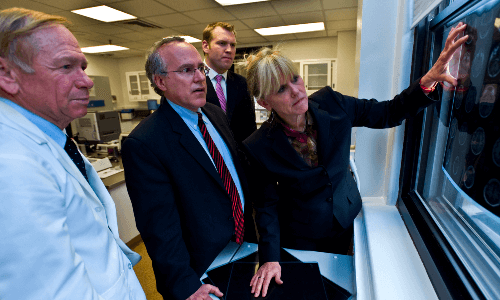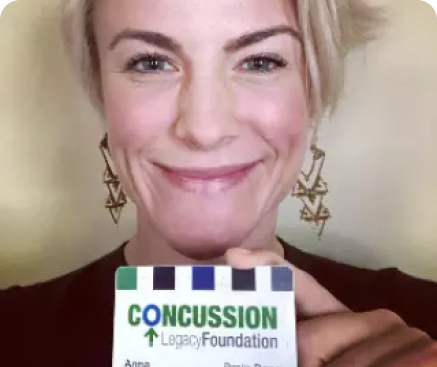Brain Donation
Frequently Asked Questions
After you pledge to donate your brain, you will receive a virtual brain donor card. Share the donor card and brochure with your family and let them know of your wishes.
For legal reasons, your pledge is not binding; the final decision to donate will be made by your next of kin. Therefore, it is essential to discuss your intent to donate with your family.
In the event of your passing, your next of kin will follow instructions on your brain donor card to contact the UNITE Brain Bank donation coordinator (available 24 hours a day, 365 days a year) via the emergency pager at (617) 992-0615. The donation coordinator will arrange the tissue collecting by a local diener near the locality where the donor has died. The donation process is a time-sensitive matter; if the brain bank team is not alerted within 48 hours the donation may not be possible.
No. All expenses involved with brain donation and participation in the research program are covered by the brain bank. Please note that funeral expenses remain the responsibility of your family.
The next of kin is required to complete consent forms authorizing brain, spinal cord, and CSF and/or plasma donation. These will be faxed or emailed by the brain donation coordinator.
The autopsy procedure does not interfere with the events associated with the funeral. No disfigurement occurs as a result of this procedure. The family can plan an open casket or other traditional funeral arrangements and the donation process will be undetectable. In addition, we will do our best not to interfere with any arrangements the family might have.
Due to the natural evolution of research, we cannot guarantee in advance that the UNITE Brain Bank will be able to accept your donation. The Brain Donation coordinator will make that determination based on the current inclusion criteria at the time of death. As of 2023, the Boston University CTE Center accepts donated brains from military veterans, contact sports athletes, victims of repeated physical violence, first responders and law enforcement, individuals who suffered single traumatic brain injuries with loss of consciousness, those with ALS, and those with second-impact syndrome. However, research needs and research funding evolve, and we cannot predict future criteria.
Over the course of several months, scientists will examine your brain tissue for evidence of injury, TBI, CTE, and any other disorders. Clinicians will interview members of your family designated by your next of kin to learn your medical, sports, and military history.
Clinical and pathological results will be reviewed by a team of doctors and researchers, who will arrive at a consensus diagnosis. Finally, together with our doctors, we will personally communicate the results to your next of kin via conference call.

